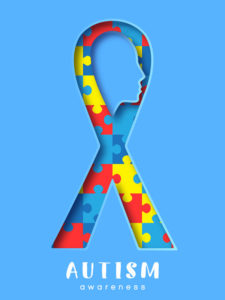By Deborah Jeanne Sergeant
 If their children face a health condition or a challenge, parents typically want to know the cause.
If their children face a health condition or a challenge, parents typically want to know the cause.
Autism spectrum disorder (ASD) is no exception.
After receiving the diagnosis, parents often want to know the answer to “why?” Though ASD expresses itself through many different combinations of a collection of traits, healthcare professionals have a single answer for its cause: “we don’t know.”
Phthalates chemicals used in a variety of consumer goods, from plastic to makeup, are now under scrutiny as a possible contributor to autism.
A recent study led by Youssef Oulhote and published in the periodical “Environmental Health Perspectives” indicates that boys born to mothers exposed to phthalates while pregnant have a slightly elevated risk for autistic type of behaviors, including struggling socially, repetitive behavior and narrow interests.
Oulhote, an assistant professor of biostatistics and epidemiology at the University of Massachusetts at Amherst, found that the effect was not observed in girls.
A few research studies have associated phthalates with an interruption in hormone development in children, which has caused some household product manufacturers to discontinue their use. However, they’re still in many goods consumers use every day.
According to the Centers for Disease Control and Prevention, “Phthalates are a group of chemicals used to make plastics more flexible and harder to break. They are often called plasticizers. Some phthalates are used as solvents (dissolving agents) for other materials. They are used in hundreds of products, such as vinyl flooring, adhesives, detergents, lubricating oils, automotive plastics, plastic clothes (raincoats), and personal-care products (soaps, shampoos, hair sprays, and nail polishes).
“Phthalates are used widely in polyvinyl chloride plastics, which are used to make products such as plastic packaging film and sheets, garden hoses, inflatable toys, blood-storage containers, medical tubing, and some children’s toys.”
Because of their prevalence, people still have lots of exposure. That’s why it’s a concern on how they could affect people.
Oulhote thinks that the differences in hormones between boys and girls may indicate why phthalates seem to affect them differently.
Oulhote’s research also indicated that taking folic acid supplements in the three months before pregnancy provided protection against the risk. Obstetricians typically advise women of childbearing age to take folic acid supplements because they support fetal health.
The March of Dimes advises taking 400 micrograms of folic acid daily before pregnancy and 600 micrograms during pregnancy to prevent neural tube defects, so women already have a good reason to take the supplement. Women who have already had a child with a neural tube defect may be advised to take a higher level of folic acid to before and during pregnancy.
The research looked at information from about 2,000 women — a pretty small population for a thorough study.
The research acknowledged that different factors appear to play a role in why some children are on the autism spectrum, such as genetics and how certain environmental factors may influence them.
But he also advised reducing use of products containing phthalates and using plastic food containers for heating leftovers or cooking, as this can cause chemicals to leech into the food.
Mary Brzustowicz, family navigator at AutismUp in Rochester, is also the parent of a young adult with ASD. She said that she found the research interesting and added, “I would be inclined to follow the health guidelines and strive to use materials other than plastic in daily life.”

